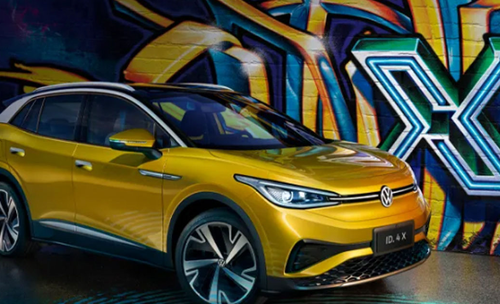
Not to be left behind by the rest of the industry, Volkswagen is the latest auto manufacturer to walk back its plans to go all-electric.
The move should come as no surprise to Zero Hedge readers, as we have been writing non-stop about the industry's shift from BEVs back to a more common sense (and cost efficient) model, hybrids, over the last year.
Volkswagen was once heavily invested in promoting its ID line of electric vehicles as the future, Bloomberg wrote this week. But now it has admitted it needs more plug-in hybrids due to slowing EV sales.
This shift is part of a broader reworking of VW's electrification plans, following botched model releases and falling behind in China, the report says. The company has abandoned efforts to seek outside investment for its battery unit and canceled plans for a €2 billion EV factory in Germany.
Despite its pivot to electric cars, VW is still selling many combustion engine vehicles and is likely to exceed its emissions allowance next year. CEO Oliver Blume has requested leniency from European regulators, a stark change from VW's aggressive EV lobbying just three years ago.
VW's electrification drive was partly a response to the fallout from its diesel emissions scandal, leading to an ambitious plan to launch 75 electric models by 2029. Former CEO Herbert Diess championed this rapid transition, causing friction with industry peers.
While not abandoning EVs, Blume is forming partnerships, like with Xpeng Inc., and preparing a new EV brand in China to attract young consumers. VW is also discussing with Renault SA to develop cheaper EVs for the mass market.
Recall back in April we noted that Ford was "re-timing" its efforts to go all electric and back in February we wrote that GM was shifting to plug-in hybrids, too.
CEO Mary Barra said on an earnings call back in February: “Let me be clear, GM remains committed to eliminating tailpipe emissions from our light-duty vehicles by 2035, but, in the interim, deploying plug-in technology in strategic segments will deliver some of the environment or environmental benefits of EVs as the nation continues to build this charging infrastructure.”
Barra announced plans to introduce plug-in hybrid electric vehicles (PHEVs) in North America on select models, aiming to comply with stricter federal fuel economy regulations. This shift mirrors industry trends, as automakers increasingly adopt hybrid technology to meet consumer demands and federal standards, following GM's main rivals who already offer hybrids and PHEVs, according to CNBC.
As we noted then, the automotive industry - which has now seen investment pulled from EV development by both major automakers that struck massive extortion labor deals with the UAW over the last year - is screaming that pure electric vehicles simply don't make financial sense.
That's the magic of Bidenomics!
Not to be left behind by the rest of the industry, Volkswagen is the latest auto manufacturer to walk back its plans to go all-electric.
The move should come as no surprise to Zero Hedge readers, as we have been writing non-stop about the industry’s shift from BEVs back to a more common sense (and cost efficient) model, hybrids, over the last year.
Volkswagen was once heavily invested in promoting its ID line of electric vehicles as the future, Bloomberg wrote this week. But now it has admitted it needs more plug-in hybrids due to slowing EV sales.
This shift is part of a broader reworking of VW’s electrification plans, following botched model releases and falling behind in China, the report says. The company has abandoned efforts to seek outside investment for its battery unit and canceled plans for a €2 billion EV factory in Germany.
Despite its pivot to electric cars, VW is still selling many combustion engine vehicles and is likely to exceed its emissions allowance next year. CEO Oliver Blume has requested leniency from European regulators, a stark change from VW’s aggressive EV lobbying just three years ago.
VW’s electrification drive was partly a response to the fallout from its diesel emissions scandal, leading to an ambitious plan to launch 75 electric models by 2029. Former CEO Herbert Diess championed this rapid transition, causing friction with industry peers.
While not abandoning EVs, Blume is forming partnerships, like with Xpeng Inc., and preparing a new EV brand in China to attract young consumers. VW is also discussing with Renault SA to develop cheaper EVs for the mass market.
Recall back in April we noted that Ford was “re-timing” its efforts to go all electric and back in February we wrote that GM was shifting to plug-in hybrids, too.
CEO Mary Barra said on an earnings call back in February: “Let me be clear, GM remains committed to eliminating tailpipe emissions from our light-duty vehicles by 2035, but, in the interim, deploying plug-in technology in strategic segments will deliver some of the environment or environmental benefits of EVs as the nation continues to build this charging infrastructure.”
Barra announced plans to introduce plug-in hybrid electric vehicles (PHEVs) in North America on select models, aiming to comply with stricter federal fuel economy regulations. This shift mirrors industry trends, as automakers increasingly adopt hybrid technology to meet consumer demands and federal standards, following GM’s main rivals who already offer hybrids and PHEVs, according to CNBC.
As we noted then, the automotive industry – which has now seen investment pulled from EV development by both major automakers that struck massive extortion labor deals with the UAW over the last year – is screaming that pure electric vehicles simply don’t make financial sense.
That’s the magic of Bidenomics!
Loading…





